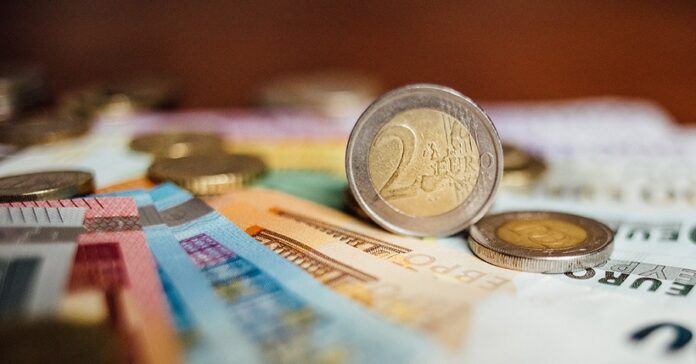Europe’s currencies slid as the region faced its biggest security crisis since World War II after Russia’s invasion of Ukraine. The euro fell 1.3%, its biggest drop since the pandemic struck in March 2020, while risk-averse Scandinavian currencies lost more than 2%, according to Bloomberg.
The Swiss franc slid against the dollar as Russian tanks moved into Ukraine o Thursday.
The common currency has now lost all its gains since the European Central Bank struck a more hawkish tone earlier this month. The invasion sent oil prices soaring, complicating the outlook for officials planning to tighten policy to deal with inflation that’s already at the highest in decades. Money markets pared bets on interest-rate hikes.
“FX investors believe that any intensification of the crisis will aggravate the stagflation risks to the euro-zone recovery, delay any meaningful policy normalization by the ECB and weigh on the euro,” said Valentin Marinov, head of G-10 currency strategy at Credit Agricole SA.
Traders are expecting more volatility and further losses. The cost of hedging against price swings in the euro-dollar pair over the next week climbed to the highest since December 2020. Options are the most bearish on the euro versus the greenback since March 2020.
While wagers on rate increases were trimmed slightly on Thursday, one quarter-point hike is still expected by the ECB by year-end. That’s still much less than six expected by the Federal Reserve and five by the Bank of England.
Traders Cling to Fed, ECB Rate Bets Despite Ukraine Invasion
In recent weeks, central bank speakers have acknowledged that the escalating tensions between Russia and NATO allies over Ukraine will affect the outlook for energy prices. Now there’s uncertainty over whether risk aversion will trump acting to combat rising prices.
The ECB said it is “closely monitoring” the situation in the Ukraine and will conduct a “comprehensive assessment of the economic outlook” at their rate decision on March 10.
Prior to Russia’s announcement of intention to “demilitarize” Ukraine and replace its leaders, Governing Council member Gabriel Makhlouf had said the ECB would probably still agree on the faster wind-down of asset purchases at the next decision.
The euro traded as low as $1.1155, its weakest this month. There may a floor beginning to emerge for the common currency as traders take into account the longer-term constructive picture, according to Neil Jones, head of foreign-exchange sales to financial institutions at Mizuho International Plc. He expects to see “some demand” around the $1.1150 level, with larger support seen around the $1.10 level.


